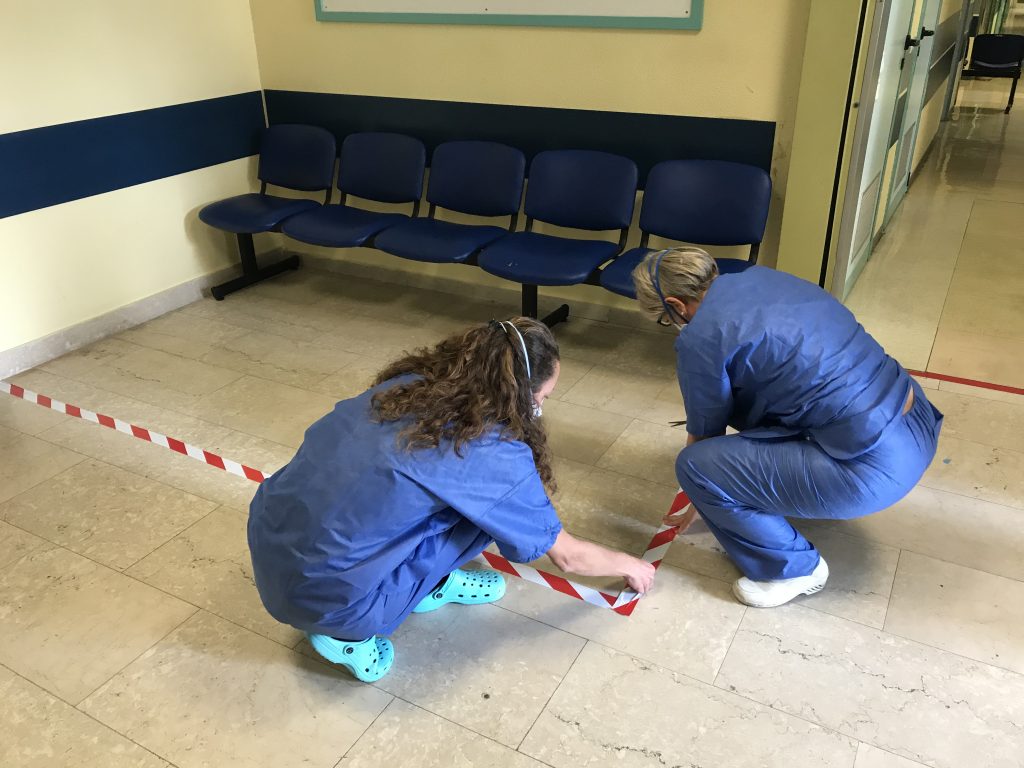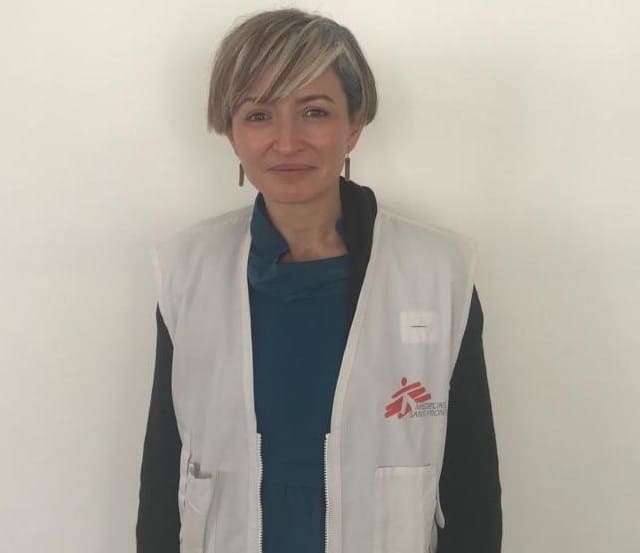MSF medical teams have joined the fight against COVID-19 as the new coronavirus disease spreads to more than 200 countries.
Project coordinator Dr Chiara Lepora is overseeing our response in Lodi province, north Italy, where we are supporting three hospitals, as well as aged care facilities in central Italy. She shares her experience working alongside Italian doctors and nurses on the frontline of the pandemic.
We have a team of around 25 people working here in the Lombardy region, primarily at the hospitals in Lodi, Codogno and Sant’Angelo. The health system here is very advanced but the virus has outpaced all attempts to deal with the increasing number of cases.
The hospitals are at their limit. In the emergency room at the Lodi hospital, there are now 80 beds. Yet even with that extra capacity, the only way to refer a new patient in is if another patient recovers or dies.
The hospitals are at their limit. In the emergency room at the Lodi hospital, there are now 80 beds. Yet even with that extra capacity, the only way to refer a new patient in is if another patient recovers or dies.
Keeping hospital staff healthy
Our main job is providing support to the medical staff inside the hospitals.
We’re doing everything we can to keep the doctors and nurses healthy because if they fall ill, there will be nobody to treat patients.
We have a lot of experience with infection prevention and control from the epidemics we face across the world, so we’re helping to create pathways and processes within the hospitals to ensure that staff are protected from infection and that people who aren’t infected don’t become infected.

Learning from the response
We’re all on a steep learning curve with this disease. We have an infectious diseases specialist, an anaesthetist, and an emergency medicine expert working side by side, and learning from the hospital doctors who were involved in the response from the beginning.
The doctors and nurses here have been at the forefront of the epidemic and have developed a clinical capacity that is extremely valuable.
We can learn from them so that we’re better prepared to fight this disease in other places. Already we’ve seen new diagnostic approaches, such as using ultrasound instead of X-ray for lung examination, that are proving far simpler.
Working beyond their limits
Outside the hospitals, we’re doing outreach work within the population, working with general practitioners and family doctors to help treat people in their homes and in facilities for the elderly.
As all hospitals have reached their capacity, there is no choice but to treat some patients with less severe symptoms at home.
Having pneumonia is serious at the best of times, so treating it at home comes with added difficulties. We’re collaborating with local health authorities on using a telemedicine and tele-surveillance service to monitor patients and their oxygen saturation so that we can intervene quickly if their situation deteriorates.
Everybody here is working beyond their limits. It’s been incredible to see people working around the clock, trying to adapt, trying to learn, trying to collaborate to save as many lives as possible, all while working in the face of so much death.
DR CHIARA LEPORA, MSF PROJECT COORDINATOR IN LODI, NORTH ITALY
“We’re doing everything we can to keep the doctors and nurses healthy because if they fall ill, there will be nobody to treat patients”

The bakery
There’s a small bakery near the entrance of Lodi hospital and yesterday I got talking to the baker. She opens from five o’clock in the morning so she can give a coffee and croissant to the medical staff who are coming off the night shift.
She told me that a lot of the doctors and nurses get their coffee, and then go and sit in a corner and start crying.
They cry there so they can get it out of the way then go home and care for their families and not show how hard it is.
Hard choices
In a crisis like this where needs are overwhelming, hard choices have to be made. As MSF, we know this very well from the critical situations we face around the world.
We will continue to provide support here for as long as we’re needed.
We are also preparing to intervene in other areas and regions, including those where the epidemic is just starting and where prevention measures can have a big impact.
On the ground, around the world, our emergency teams are experts at fighting epidemics. With your support, we will help beat the new coronavirus pandemic.
-
Related:
- coronavirus
- COVID-19
- Italy












